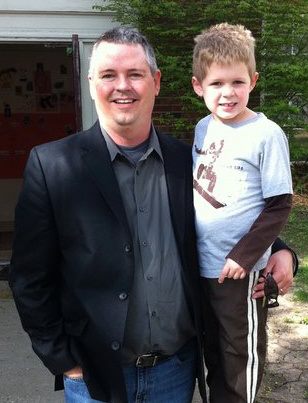
I’m working on building a TED talk for TEDxMU on April 14th. It’s about the things my son with autism – a communications disorder – has taught me about communication. I’ve been chronicling the process here on The Daily Blur in the hopes that – by watching me deconstruct the process I’ve gone through many times – you’ll begin to look at public speaking with a little less mystique and anxiety.
Last week, I dumped everything out of my right-brain … or rather, I showed you what two weeks of storing ideas in Evernote as they came to me produced when I dumped them all into that blog post.
Over the weekend, I repeated the process – only using additional stimulation:
- I studied the list. I remembered as best I could the stories behind the stuff on the list.
- I watched videos from throughout Will’s life – using them, again, to remember context and lessons from the period.
- I looked at pictures – we took so many pictures – that led me to thousands of words.
First of all, sheesh. Where does time go, yo?
Dee first said the word ‘autism’ in November of 2005. That’s over six years ago!
So, I spent the weekend with Evernote open once again – filling in more notes and jotting down more bits and fragments fueled by the list, videos and pictures.
It gave me these additional ideas:
“God doesn’t give special needs children only to people who can handle them. God gives special needs children only to people who need them.”
This idea of the 21-hour-work-week and how we need to focus on stuff that matters instead of going through any sorts of motions. Check out the 168 hours book. This stuff matters. How does it relate back to Will. Also, look over this concept of “enough.” – how does it all tie together. What are the missing pieces of the puzzle?
Like teaching our son to make eye contact. – Bring everyone’s eyes back to mine at the beginning and end of the talk.
The idea of focus. Meaningful contact requires time, patience and sacrifice – we don’t like any of those three things. Because they don’t come intuitively, we have to practice kindness and praise it.
Practice empathy. Practice eye contact. The Internet may have opened our eyes but it can just as easily close them. Along with our hearts.
Transitions are hard. Predict behavior. Schedule. What gets scheduled gets done.
Firehose in a teacup – so much coming at them but so little can sometimes come out.
Life’s become like that dollar bill machine at chuck e cheese – so much whirring and blurring past our faces.
“DDdy – jet pack license.” if thinking like this is atypical. I don’t wana be typical. Why is it everybody wants their children to be typical but no one wants them to be average?
Why do our schools, as my friend Bonnie Young says, teach our children what to think – not how to think.
I think … It’s time we start questioning some of the basic assumptions underlying our current views of normal … And typical … And reasonable. George Bernard Shaw quote.
We all have special needs. Maslow. Perpetually wanting creature.
OPENING: TED Talk For all your special needs. Open with … I want you to do me a favor … I want you to take five seconds to think of a song … any song … first one that pops into your head. Okay. I’m going to countdown from three – then you’re going to start singing it at the top of your lungs okay. 3 … 2… 1… go …
And now, I’m going to continue with my talk … and hopefully give you a little glimpse into my son’s consciousness.
Because thais noise – thus overwhelming buzz of hyper stimulation … it’s not Will. It’s you. (slide of Tweetdeck.)
You don’t think the Matrix has us? (Louis CK quote – everything is awesome and no one is happy.)
And, subsequently, into my world, and my total lack of understanding about communication.
These are the ideas I’ll use to start getting specific – to start really building the talk.
I have my thesis. I have four things left to do:
- Write an ending.
- Write a beginning.
- Write my supporting points – in my case, the specific things (and stories behind them) that Will has taught me about communication – keeping in mind the three lengths of the talk I ultimately want produced.
- Build a cool slide deck that complements my talk.
So, we’re getting there, aren’t we?
Any questions so far?

Leave a Reply